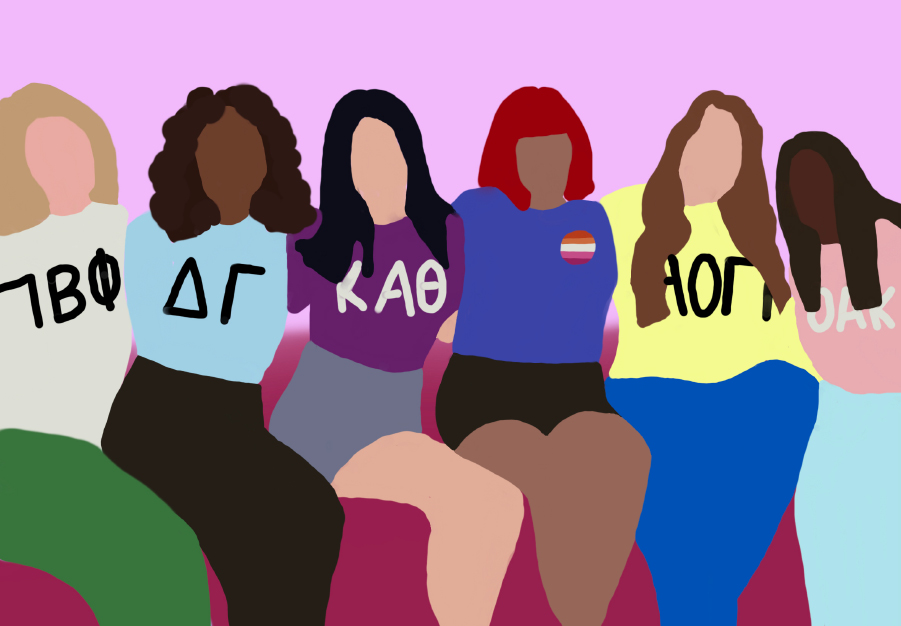If you live off-campus, you probably pay a monthly Internet bill—right now, probably just a flat monthly fee. Imagine instead having to pay a premium surcharge for access to specific services like Netflix, Skype, or Facebook. Thanks to a new set of regulations put forth by the Federal Communications Commission (FCC), this could all too soon become reality.
Back in 2010, the FCC announced an Open Internet Order that, though flawed, introduced some semblance of a reasonably regulatory framework by banning content blocking and “unreasonable” discrimination by Internet service providers (ISPs). In particular, the order warned extensively against the type of “fast lane” arrangements that would allow companies to further exploit their monopoly power, taking advantage of Internet companies and consumers alike.
In 2013, Verizon took these rules to court, won, and the Open Internet Order was struck down. This left the FCC—now chaired by Tom Wheeler—with a couple of options. “We will consider all available options,” Wheeler said, “including those for appeal.” Needless to say, the FCC didn’t appeal, announcing in February that they would instead aim to regulate ISPs “on a case-by-case basis.” They proceeded not to do that either, opting instead to issue a set of proposals that put blind faith in monopolistic ISPs to provide honest and quality service to their consumers.
Though the media has repeatedly described these proposals as “net neutrality,” they’re really anything but. Net neutrality is the idea that ISPs should treat all online traffic equally—that, for example, AT&T shouldn’t be able to offer faster connections to certain types of websites and slower ones to others. It’s the idea that the Internet should be equally accessible to everyone—nothing like cable, and everything like the low-barrier-to-entry “information service” (FCC’s own words, as of 1996–2010) it was originally designed to be.
Instead, the FCC now proposes to classify the Internet as a “telecommunications service.” Though these new regulations would ban providers from blocking specific websites, they’d still allow ISPs to set aside special “fast lanes” for preferred websites, ensuring that some sites load faster for customers as others load slower—or, more likely, not at all. Notably, these are the same exact “fast lanes” the FCC so adamantly warned about in 2010. Permitting them is an absurdly terrible idea, and not at all what net neutrality is about.
In the vein of negotiations that currently take place between television channels and cable companies (recall last year’s infamous showdown between CBS and Time Warner), fast lanes would likely entail websites being strong-armed into paying providers to ensure that their users have adequate access to their services. This is an especially real threat for sites like Netflix, Skype, and YouTube, whose content generally calls for a faster connection and competes directly with providers’ own cable and phone services. If customers are already getting their calls through Skype and their TV shows through Netflix, what incentive do they have to pay for a cable company’s overpriced alternatives?
The biggest problem with the FCC’s proposal is that it places trust in companies that have earned anything but—companies that habitually exploit their monopoly power to sell mediocre if not downright infuriating standards of service at highly inflated prices. These are companies that are routinely dishonest about the products they sell, providing users with Internet speeds up to 46 percent slower than advertised—a laughable 3.5 times slower than our friends in Hong Kong. In fact, the United States ranks a pathetic 31st in the world’s consumer download speeds, behind Latvia, Estonia, and Uruguay.
It’s not that the United States lacks the technology to provide faster service (think Google Fiber). It does, however, lack the infrastructure. That’s why, according to the FCC’s own data, two-thirds of households have access to just two or fewer broadband providers, 28 percent of households, to one or fewer.
But so do most other countries. There’s no real reason to construct twenty different private Internet infrastructures. If the industry is regulated properly, there isn’t even a real reason to lay out more than one. The problem here is regulation, and even more so who’s doing the regulating.
So, who is doing the regulating?
FCC’s current chairman Tom Wheeler, for example, was formerly president and CEO of the National Cable & Telecommunications Association (NCTA), which spends over $20 million annually lobbying for the interests of cable companies including Comcast and Time Warner. He’s also served as CEO of the CTIA, the nation’s largest cell and wireless trade group. Prior to him, the regulatory lobby—excuse me, body—has been chaired by both current CTIA CEO Meredith Attwell Baker and current NCTA CEO Michael Powell. From Vice President Dick Cheney’s military contracting gig to Representative Richard Gephardt’s lobbying firm, the FCC isn’t the only place where high-level executives float between governing the regulated and the regulators.
The issue of net neutrality is of paramount importance. Even if the FCC does move forward with classifying the Internet as a telecommunications service, specifying it as a Title II telecommunications service—a “common carrier” like the telephone, which must be open to all users at a uniform rate—would be a crucial way to help prevent “fast lane” company abuse. Especially now that the FCC has expressed some interest in revising its proposals, I strongly encourage anyone who cares even remotely about not seeing their Internet bill segmented into an (even more) overpriced, cable-esque collage to share their thoughts with the FCC at openinternet@fcc.gov.
But until we address the problem of the revolving door between federal agencies and top lobbying firms—until we regulate the regulators—any fix on individual topics like this will only be a Band-Aid on what amounts to a very broken bone.
The revolving door never seems to hit people hard enough (or at all) on their way out…or, for that matter, back in. Let’s give it another push.
Anastasia Golovashkina is a third-year in the College majoring in economics and public policy. Follow her on Twitter at @golovashkina.







